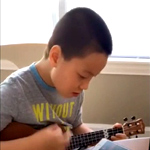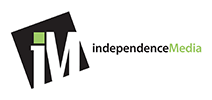About Ming Ting
Interview conducted October 2020
Location: Philadelphia

Ming Ting is the proud mother of two boys. Dennis, 10, is on the autism spectrum; Lucas, 6, also requires special education. During COVID-19, Ming Ting learned to coexist with the pandemic and make the best of the situation. It reminds her that to Dennis, autism is a lifelong reality that he has to learn to "get along" with.
我的名字是陈明婷,我有两个儿子 大儿子Dennis 他10岁,是一个自闭症孩子 。Lucas 6岁 他也需要特殊教育 。在covid 我学习怎么跟covid 相处 ,covid 给我的感觉就像坐着过山车一样的 ,让我再次体会到自闭症对Dennis来说是一辈子的事 ,让我更好体会到“着怎么跟自闭症相处
Ming Ting's Story: English
INTERVIEWER
Describe a typical day in your life before COVID-Describe your day now. What has changed?
MING TING
Before COVID-19, days were centered on our two sons' schools, homework, doctor's appointments and various activities. My 4th grader Dennis is on the Autism spectrum, so we got him involved with music therapy, swimming and karate. On the weekends we went to church and Chinese school. Since the schools closed in March, we have been home everyday, with me trying to stay positive, being the teacher and caretaker, and containing my sons' excess energy. I sit with them during on-line instructions and struggle with the language and technical issues.
INTERVIEWER
Describe the challenges you are experiencing due to COVID-19.
MING TING
As much as I treasure the quality time I spend with my kids, it has been challenging to be their only resource, especially with Dennis, who used to receive special support and therapies at school. I also see some regressions in his social and communication skills. While going back to school will definitely benefit Dennis, I worry about sending my first grader, Lucas, to school without a vaccine. Lucas has Juvenile Rheumatoid Arthritis, a chronic autoimmune disease that puts him at greater risk of all infectious diseases
It's also been difficult navigating the on-line learning platforms and the great number of web-based communications from schools and service providers with my limited English. And adequate translation is not provided. I often feel helpless and anxious about not being able to advocate for my children when needed.
We as a family, as well as so many others in our immigrant community, feel very stressed out about the loss of jobs and incomes. On the other hand, we are also afraid of taking advantage of the many government aids, which we desperately need, in fear of jeopardizing our immigration status or green card applications. The language barrier and prejudice we face makes it extra difficult for us to get through this trying time.
COVID-19 brought even more consequences, like a third wall is added to our already isolated life.
Immigrant life is a lonely life; we never quite feel a part of the mainstream. We work hard to get acclimated in this society with the dream of a brighter future for the next generations. While we struggle to navigate through our language and cultural barriers, prejudice is like a wall between our intentions and our goals. COVID-19 brought even more consequences, like a third wall is added to our already isolated life. And with the travel bans and the current political atmospheres, it could be years before I see my family in China. It makes my heart ache to think about my aging father.
I am also concerned about how my son Dennis would handle his peers' discriminatory comments about China in regard to the virus, influenced by some of the language of the adults, including our president's. Being on the Autism spectrum, he has much trouble with deciphering people's negative comments, and that triggers a lot of confusion and anxiety in him, which he responds to by shutting down.
INTERVIEWER
What are the positives, if any, that have come from this shift in space and company? What brings you joy?
MING TING
Because we have spent so much time together, I get to observe Dennis' progress first-hand. We are also able to slow down the pace and take our time to work on things together. I encourage my kids to maintain a regular schedule on school days. Dennis would get himself up in the mornings and watch the time to get online for his lessons. He even learned to make eggs in the mornings! These are things that we have worked on for a long time and it feels incredible to see the results. Most importantly, they brought him a sense of independence and confidence.
畅所欲言 / Ming Ting's Story: Mandarin
1.请描述在COVID-19 之前你典型的一天。描述你目前的一天.
在疫情之前,我们每天的时间都是围绕着两个孩子的学校,作业,看病,或是课外活动等等。我们四年级的兒子Dennis 有自闭症,所以我们送他去学游泳,空手道,和音乐治疗。周末我们全家去教会,孩子也去上中文学校。三月学校停学之后,我们基本上每天待在家里。我尽我所能的保持乐观的态度照顾孩子,做他们的老师,尽量用健康和平的方式帮助他消耗过度的精力。他们上网络学习时,我和他们一起适应这些新的学习方式。
2 因为COVID-19, 请描述你所经历的挑战。
我很珍惜这段时间,但是作为孩子们唯一的支柱与资源是非常吃力的,特别是Dennis。他过去在学校有得到特殊教育和各种治疗。在过去几𠆤月里,他的沟通能力和社交技能很明显的退步了。开学后如果能面对面学习对于他会是好的,但是在疫苖发明前去学校对於我的小兒子又有亟大的风险。Lucas今年上一年级,本来是多么开心的一件事!但是他有JRA,儿童类风湿关节炎,是一种慢性免疫系统疾病,使他对于被各种疾病传染的风险大大提高。此事让我的内心十分纠结。
我的英文程度有限,帮助孩子们在网上学习以及阅读上百个关于学校,治疗服务和医疗的邮件对我而言非常吃力。绝大多数文件不提供翻译。我经常感觉对于为孩子爭取福利和权利方面无能为力。
我们的家庭,以及无数的新移民家庭,在疫情时期失去了工作和收入。虽然政府提供了许多的补助资金和福利,大多数的人因为身份的问题,不能不放弃这些亟其需要的帮助。我们所面对的歧视和语言障碍使这原本已经充满挑战的时期更加困难。
新移民的生活是非常孤独的,我们从不感觉到被主流社会接受。我们辛苦的工作来适应社会,梦想着下一代的未来会有更光明的远景。虽然我们努力的克服语言和文化上的障碍,外界的岐视就像是墙一般的阻碍了我们的意愿和目标。现在疫情像是第三道墙,阻挡了我们原本已经被隔离的生活。而以目前的政治局面和旅游方面的限制,不知道要多少年才能见到我的家人。想到我年长的父亲让我感到非常心痛。
这段时间内我们听到了很多关于中国与疫情的歧视性的话题,包括了美国总统的攻击。我很担心Dennis 对于别人的歧视会如何反应。诠释他人的负面言论对于自闭症的孩子有很大的困难,这会引起亟大的焦虑和困惑,引起他的自我封闭。
3 你对发生在你周围的事物有些什么感想?什么带给你喜乐?
因为近来我们有许多吋间共处,我有机会親自观察到Dennis 的进展。我们同时也能慢下脚步多花时间来学习。我鼓励我的孩子们在上学的日子生活要有规律。Dennis 自动自发的每早起床梳洗,凖时自己上网,甚至于学会自己煎鸡蛋!这些都是我们花了很长时间练习的习惯,能得到成果让我感到非常欣慰。最重要的是,它们带给他自信和独立自主的成就感
The Chinatown Disability Advocacy Project (CDAP)
The Chinatown Disability Advocacy Project is a grassroots group of parents and community members who educate and advocate for inclusion in education, healthcare, and social life. We hold monthly workshops, education sessions and community activities, so people have information to best plan for themselves and their families. You can follow the Chinatown Disability Advocacy Project on Facebook to find out about our activities.
华阜残障倡导会是一个由家长与社区成员共同组成的团体。我们的使命是运用教学和拥护的方式,提倡在教育,医疗保健,和社交生活的社会融入。我们每个月提供讲座,教育培训,和社区活动,以期提供资源,帮助大家和家人更好的计划未来。请您在臉書上跟随Chinatown Disability Advocacy Project 来参与我们的活动。
About the Project

This project was made possible with generous support from the Independence Public Media Foundation.
For more information
Contact us at [click-for-email].
The Disability and Change Symposium is available as a free online learning module.
Combating Implicit Bias: Employment

About this year's theme
Employment statistics for persons with disabilities continue to be disappointing, ~19% compared to ~66% of peers without disabilities. (US Bureau of Labor Statistics, 2018). We ask ourselves, "is there something beyond overt discrimination and access that perhaps we need to address? Are there silent barriers such as those created by implicit bias?"
Most of us believe that we are fair and equitable, and evaluate others based on objective facts. However, all of us, even the most egalitarian, have implicit biases – triggered automatically, in about a tenth of a second, without our conscious awareness or intention, and cause us to have attitudes about and preferences for people based on characteristics such as age, gender, race, ethnicity, sexual orientation, disability, and religion. These implicit biases often do not reflect or align with our conscious, declared beliefs.(American Bar Association, Commission on Disability Rights, "Implicit Bias Guide," 2019)
This year's theme challenges us to each ask ourselves "What implicit bias(es) do we have and encounter, and how do we recognize them and move beyond them to create opportunities, welcome, and full participation for all?"
As always, this Symposium privileges first-person voices and experiences.
About the Disability and Change Symposium
The stated goal of the annual Symposium is "to create conversation that transcends any one-dimensional depiction of people with disabilities, and foregrounds the multidimensional lives of our speakers - as writers, educators, performers, and advocates."
The Disability and Change Symposium is a one-day, interdisciplinary conference focusing on cultural equity and disability. The event is free, accessible and open to the public.
Acknowledgments
Organized by the Institute on Disabilities at Temple University, the Symposium is an outcome of collaboration with the Interdisciplinary Faculty Council on Disability whose mission is "to foster collaboration across Temple University on disability-related projects including research, teaching, programming, publication, and grant-seeking. By connecting with one another, Council members help build community among the growing number of people at Temple whose work engages with disability."
Core funding for the Disability and Change Symposium is through a grant from the Center for the Humanities at Temple University (CHAT)
We extend our appreciation to Disability Resources and Services for providing Communication Access Realtime Translation (CART) and American Sign Language services for the day.
The Institute on Disabilities, Temple University College of Education is pleased to recognize some of our 2020 Symposium Partners/Sponsors from Temple University:
- Center for Bioethics, Urban Health, and Policy (CBHUP), Lewis Katz School of Medicine
- Center for Humanities at Temple (CHAT), College of Liberal Arts
- Dean of Libraries
- Dean of Students
- Delta Alpha Pi International Honor Society
- Disability Resources and Services (DRS), Student Affairs
- Division of Student Affairs
- Faculty Senate Committee on Disability Concerns
- First Year Writing
- Intellectual Heritage
- Interdisciplinary Faculty Council on Disabilities
- Office of Institutional Diversity, Equity, Advocacy and Leadership (IDEAL)
- School of Sport, Tourism, and Hospitality Management
This year we also want to recognize the contributions of students (Associate Professor Deb Blair, STHM 2114 - Leisure & Tourism in a Diverse Society), who contributed to shaping and supporting this symposium:
- Madeline Culbert, School of Sport, Tourism, and Hospitality Management; Bachelor of Science: Tourism and Hospitality Management (est. 08/2021)
- Jair Guardia, School of Sport, Tourism, and Hospitality Management, Bachelor of Science: Tourism and Hospitality Management. (est. 08/2021)
- Hallie Ingrim, School of Sport, Tourism, and Hospitality Management Bachelor of Science: Tourism and Hospitality Management
- Thomas Leonard, School of Sport, Tourism, and Hospitality Management Bachelor of Science: Tourism and Hospitality Management (est. 08/2021)
- Bryan McCurdy, School of Sport, Tourism and Hospitality Management, Bachelor of Science: Tourism and Hospitality Management (est. 05/2022)
